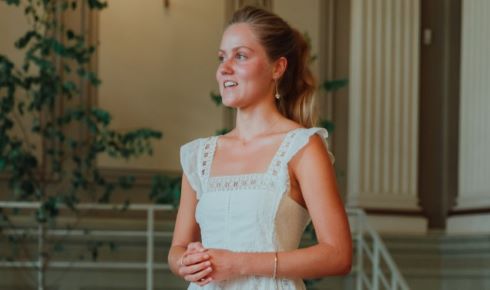The next generation of governance

27th May 2024
An RSB scheme allows early career scientists to shadow the work of trustees, with the aim of helping to diversify the boards, councils and committees of scientific organisations and charities
You might not be surprised to read that charity boards are not particularly representative of the people they are meant to represent and support. A 2022 report exploring 500 of the UK’s largest charities¹ found that just 13% of charity boards achieved gender parity, and almost a third of charities had all-white boards.
Another report commissioned in 2017² indicated that the average age of a trustee was 60-62 and over half were retired. It found just 8% of trustees were from an ethnic minority background, 64% were men and 75% were above the national median household income.
The experience required to sit on a board can be difficult to acquire, and the positions can seem to symbolise elitism and exclusivity. Financial, geographical, personal and professional barriers also frequently prevent people from pursuing trustee positions.
What’s more, trusteeship is often not well understood by people working outside the charity sector, with most adults unable to describe key responsibilities of the role. A lack of formalised trustee advertisements across the sector exacerbates this – how can you be what you cannot see?
And yet trustees set the strategic direction and provide leadership to ensure scientific organisations and charities meet their aims and objectives. Enabling diversity of thought within senior decision-making structures not only leads to greater creativity and innovation, but also fosters inclusive environments with informed, improved outcomes.
SEAT of power
The decisions made by the RSB’s governing board (Council) are relevant to members across all grades and over 90 Member Organisations, which is why openness is imperative. Decisions should not be made without the people affected by the issues.
To address this, the Society has developed a novel pilot scheme to remove barriers and empower people to apply for trusteeship roles. The Support, Experience, Acknowledge, Train (SEAT) Trainee Trustee Pilot Scheme saw the RSB appoint two ‘trainee trustees’ to its Council for a year at the end of 2023. The Society encouraged applications from people who identified as early career, people with different abilities and skills within the life sciences, individuals from minoritised groups and those with varied career paths. A key element of the scheme is that applicants were required not to have previous trustee experience.
This is not a formal board member position, with no voting rights or legal responsibilities – yet it offers more than just observer status. The scheme aims to be a rewarding experience with reimbursable expenses, free training, and pre- and post-board meetings, with a dedicated ‘Board Buddy’ to understand the agenda, papers and the implications of the Council’s decisions.
The trainee trustees will also have opportunities for networking and socialising to expand their professional networks, and to meet with the RSB’s senior management team, president, honorary secretary and honorary treasurer.
 Trainee trustee Laura Vanaga
Trainee trustee Laura Vanaga
Rewarding experience
Laura Vanaga, a master’s student in bioscience entrepreneurship at UCL, is one of the two trainee trustees who have been in place since late last year. She applied for the scheme because she was interested in the Society’s work and wanted to gain this particular type of professional experience. “I wanted to know how boards of charities operate, how unanimous decisions are made and how resources are being prioritised,” she says. “As a young person, I don’t often get to see the decision-making part.”
Rob Lever, also a trainee trustee and an industry-funded PhD student in synthetic biology at Imperial College London, says he had not seen any opportunities of this kind before.
“I have some friends who have worked as trustees for a school and a university’s student union, and they had found it very interesting and rewarding,” he says. “I also wanted to understand top-level decision-making better. I had previously worked in R&D for a biotech company, and the research strategy and decisions on project progression were very much made by the leadership and disseminated downwards.”
 Trainee trustee Rob Lever
Trainee trustee Rob Lever
For Vanaga, the experience has so far exceeded her expectations. “I feel very free to express my thoughts and opinions, and to ask questions. And I can definitely say I have learned a lot. I have learned how to listen (the core skill of a good trustee), how to express myself in a mannered and structured way, how to set strategic goals and how to see the big picture.”
Lever says that although the first Council meeting was somewhat overwhelming, with “long intense conversations” about the RSB’s huge variety of work, being partnered to RSB President Professor Sir Ian Boyd was helpful in making sense of it all. “Opportunities such as this are very rare and to be an early career biologist with the opportunity to see and learn from some experienced Council members is fantastic.”
Positive feedback
The RSB will be evaluating the pilot at the end of the trainee trustees' year, but their experiences so far are positive, especially amid a backdrop of growing questions over whether equality, diversity and inclusion initiatives are working. Research from specialist insurance group Ecclesiastical found “just half (50%) of charities say they are actively looking to recruit trustees from more diverse backgrounds – down 14% on 2022³”.
As the Society opens its doors to more diverse voices on the Council, we must ensure that a seat at the council table is welcoming, accessible, transparent and generates a sense of belonging. Promoting and celebrating stories of how people from various backgrounds contribute towards strategic decisions of the RSB is pivotal for us to showcase how much we acknowledge, value and benefit from different opinions to drive cultural change within our organisation.
For more information on the SEAT scheme contact the Policy team.
References
1) Charities Inclusive Governance Report. Inclusive Boards, 2022.
2) Taken on Trust: awareness and effectiveness of charity trustees in England and Wales. The Charity Commission, 2017.
3) ‘Percentage of charities attempting to improve trustee diversity drops’. UK Fundraising News, 7 November 2023.
Dr Jade Hall MRSB is a senior science policy officer (equality, diversity, inclusion and culture) at the RSB


